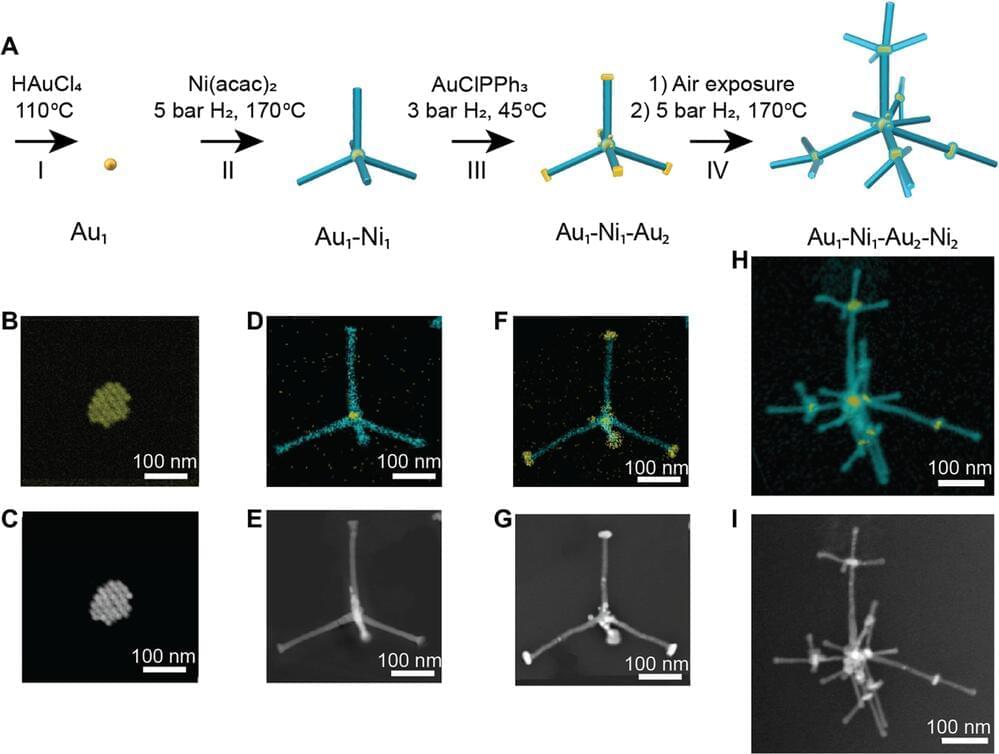Scientists from UNSW Sydney have demonstrated a novel technique for creating tiny 3D materials that could eventually make fuel cells like hydrogen batteries cheaper and more sustainable.
In the study published in Science Advances, researchers from the School of Chemistry at UNSW Science show it’s possible to sequentially “grow” interconnected hierarchical structures in 3D at the nanoscale which have unique chemical and physical properties to support energy conversion reactions.
In chemistry, hierarchical structures are configurations of units like molecules within an organization of other units that themselves may be ordered. Similar phenomena can be seen in the natural world, like in flower petals and tree branches. But where these structures have extraordinary potential is at a level beyond the visibility of the human eye—at the nanoscale.
